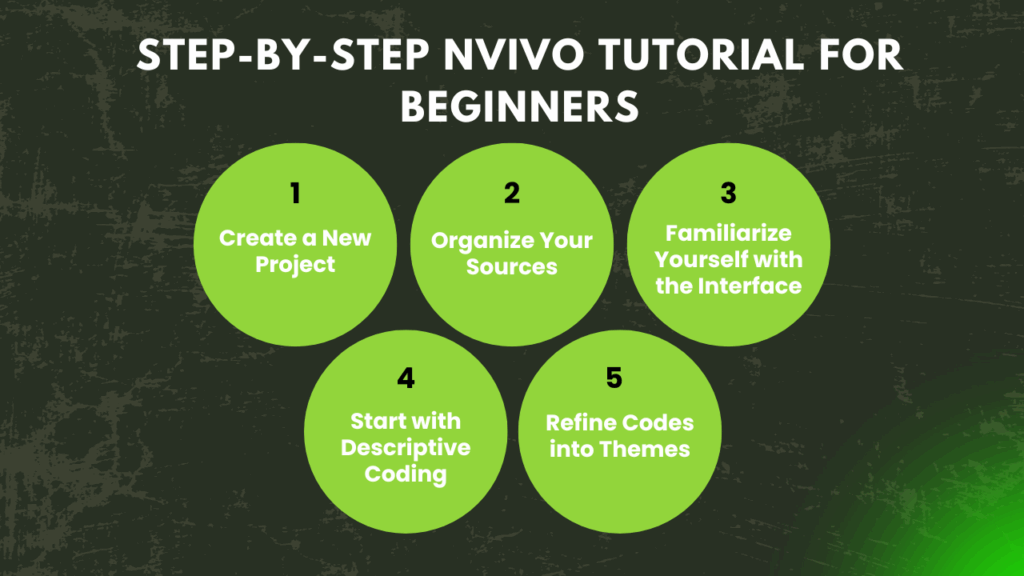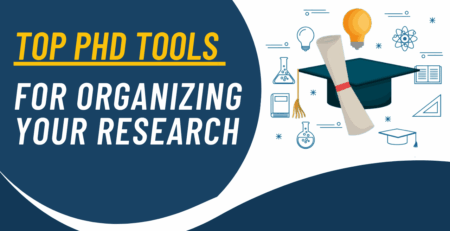The Smart Way to Start Coding Qualitative Data with NVivo
Kenfra Research - Bavithra2025-10-28T16:44:24+05:30Coding qualitative data with NVivo is one of the most efficient ways to manage and analyze large volumes of non-numeric information like interviews, focus groups, or open-ended survey responses. In the world of qualitative research, organizing data meaningfully can make the difference between surface-level findings and deep, insightful conclusions.
Whether you’re a beginner just learning the ropes or an experienced researcher looking to sharpen your workflow, coding qualitative data with NVivo can help you streamline the process, uncover patterns, and tell a stronger research story.
Why Coding Matters in Qualitative Research?
Before diving into NVivo itself, let’s understand why coding is so central to qualitative data analysis. Coding involves assigning labels (codes) to pieces of textual or multimedia data that represent concepts, themes, or ideas. These codes help researchers organize data, draw comparisons, and build conceptual frameworks.
Traditionally, coding was done manually—on paper or spreadsheets—but this becomes tedious and error-prone as the data volume grows. That’s where qualitative analysis tools like NVivo step in, making the process structured, traceable, and scalable.
Getting Started: Setting Up NVivo for Research Coding

Step-by-Step NVivo Tutorial for Beginners
1. Create a New Project
Name your project and import your data sources. NVivo supports documents, audio, video, surveys, and even social media content.
2. Organize Your Sources
Group your data logically. For example, separate interviews from field notes or categorize them by participant type.
3. Familiarize Yourself with the Interface
Spend some time understanding the ribbon, coding panels, and navigation panes. This helps avoid confusion as your project grows.
4. Start with Descriptive Coding
Use surface-level codes to label obvious patterns, such as “motivation,” “challenges,” or “goals.” These become your initial nodes (NVivo’s term for code containers).
5. Refine Codes into Themes
As your analysis deepens, group similar nodes under broader themes using NVivo’s “Node Tree” structure.
Manual vs Automatic Coding in NVivo
One powerful feature of NVivo is its automatic coding functionality. It allows you to run queries and text searches to identify frequently used words or phrases. However, manual coding is still recommended for nuanced interpretation, especially in exploratory research where context is key.
When to Use Each?:
- Manual Coding: Best for in-depth interpretation and theoretical frameworks.
- Automatic Coding: Ideal for large datasets and initial keyword scanning.
Combining both gives the most robust insights, helping to balance efficiency and depth.
NVivo Coding Process for Interviews and Focus Groups
When you’re dealing with qualitative interviews or group discussions, NVivo coding can help identify common themes across participants.
Here’s how:
- Import each transcript as a separate source.
- Create cases to represent individual participants or groups.
- Use queries to compare coding coverage by case, gender, region, etc.
- Run charts or cluster analysis to visualize relationships.

Efficient Ways to Code Data in NVivo
Maximize your productivity with these smart strategies:
- Use coding stripes: Visually track how segments are coded.
- Memo links: Attach reflective notes to your nodes for later review.
- Annotations: Mark uncertainties without losing your coding rhythm.
- Matrix coding queries: Cross-tabulate codes and cases to see intersections.
These tips aren’t just for NVivo pros—they’re efficient ways to code data in NVivo that even beginners can apply with ease.
NVivo for Academic Research: Building a Reliable Coding Framework
Academic projects often require rigorous coding frameworks aligned with theoretical models. NVivo supports this by allowing hierarchical coding structures, audit trails, and transparent export of coding reports.
How to Build a Strong Coding Framework?
- Start with a literature-informed codebook.
- Develop parent and child nodes to reflect broad themes and sub-themes.
- Regularly review inter-coder reliability if working in a team.
- Link your codes to specific research questions or hypotheses.
This approach ensures your findings aren’t just rich, but also academically credible.
Analyzing Qualitative Data Using NVivo: Turning Codes into Insights
After coding, the real work begins—analyzing qualitative data using NVivo to extract meaning. Use thematic queries, content comparisons, and visualization tools like word clouds, hierarchy charts, and heatmaps to dive deeper.
NVivo doesn’t analyze the data for you—it simply provides a powerful structure so your interpretation becomes faster, clearer, and more defensible.
Final Thoughts: Why NVivo Coding Is Worth the Effort?
Mastering NVivo for qualitative data analysis isn’t just about learning software; it’s about elevating your research process. At Kenfra Research, we support scholars, researchers, and institutions in using tools like NVivo to bring clarity and depth to their qualitative work. If you need personalized guidance, training, or end-to-end assistance with your data analysis, our expert team is here to help make your research both credible and impactful.
So whether you’re working on a thesis, policy study, user research, or a nonprofit impact assessment, embracing coding qualitative data with NVivo can transform your workflow and help you deliver sharper, more compelling results.









Leave a Reply